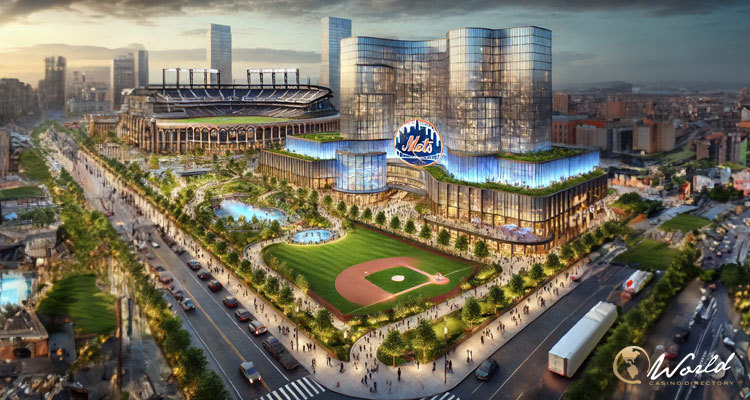Steve Cohen, owner of the New York Mets, is making waves with his latest venture—a sprawling development near Citi Field that includes plans for a new casino. The ambitious Metropolitan Park project aims to turn the underutilized area into a bustling destination with parks, restaurants, and shopping, setting the stage for a major entertainment hub in Queens. While still navigating political hurdles, Cohen’s proposal is already drawing attention from major players in real estate and gambling.
Strategic developments and community impact:
Cohen, a billionaire hedge fund manager who acquired the Mets in 2020, has chosen a 50-acre site, currently serving as Citi Field’s parking area, for this venture. The proposed highlight of this complex is a casino to be managed by Hard Rock Entertainment. This move is part of Cohen’s strategy to secure one of the new casino licenses made available through recent state legislation that allows for additional downstate gaming establishments. This development has attracted global attention, drawing in prominent figures from the real estate and gambling sectors eager for a profitable venture.
In an effort to gain support for his Metropolitan Park project, Steve Cohen is offering several community benefits. These include plans to redevelop the Willets Point area near Citi Field, transforming it into a major entertainment hub. Proposed features include 20 acres of public parks and 5 acres of community sports fields, along with improvements to public transit (specifically the Mets-Willets Point 7 train station), roads, and bike paths. Additionally, Cohen’s team plans to establish a $163 million fund to support local nonprofits in Queens.
Beyond that, the project promises to introduce a live music venue and a “Taste of Queens” food hall, showcasing local vendors. Cohen’s team estimates the entire proposal would inject $8 billion into the local economy and generate over 23,000 jobs, both temporary and permanent.
Navigating political and legal challenges:
This proposal aligns with ongoing efforts to revamp the eastern section of Willets Point, historically known for its autobody shops and scrapyards, into a thriving area featuring a new soccer stadium for the New York City Football Club and numerous affordable housing units.
Despite the ambitious scope of Cohen’s proposal, it represents just one among many seeking the limited new casino licenses available in downstate New York. The intense competition includes bids for casino sites in locations such as Times Square, Hudson Yards, and Coney Island, with many facing considerable community opposition.
A significant hurdle for Cohen is the project site’s status as parkland, which complicates development efforts. A parkland alienation bill, necessary for such developments, faces uncertainty. Notably, state Sen. Jessica Ramos, a mayoral candidate, has expressed opposition to introducing the necessary legislation, citing her constituents’ disapproval of a casino.
Despite this setback, Metropolitan Park spokesperson Karl Rickett remains optimistic. “The state’s process was never designed to allow any single individual to halt a project unilaterally,” Rickett explained, as reported by amNY. He added: “We have plenty of time and other avenues to get this done and feel confident given the overwhelming support from elected officials, unions, and the local community, that we have the best overall project. We are all in.”
As the proposal awaits approval from a committee of local elected representatives, it continues to garner support from notable local politicians such as Assembly Member Jeffrion Aubry and City Council Member Francisco Moya, both of whom advocate for the project.



